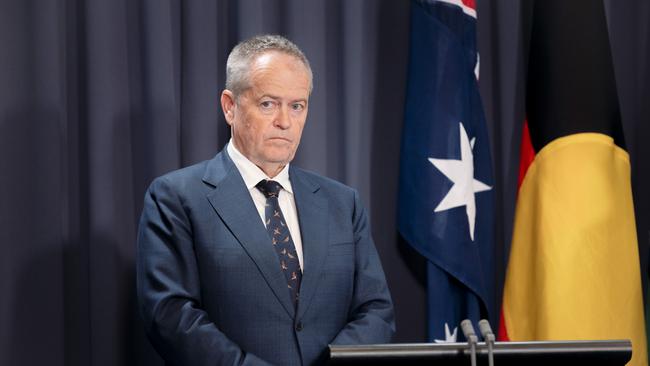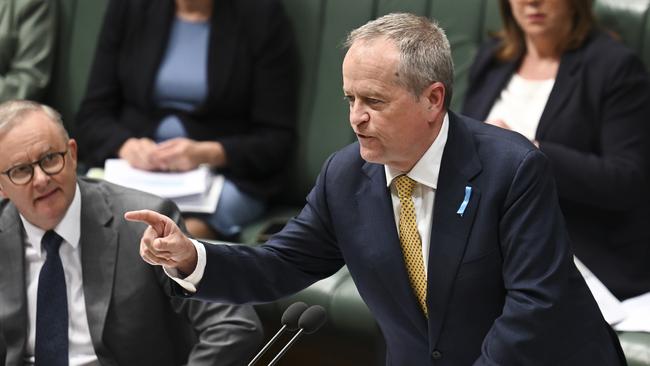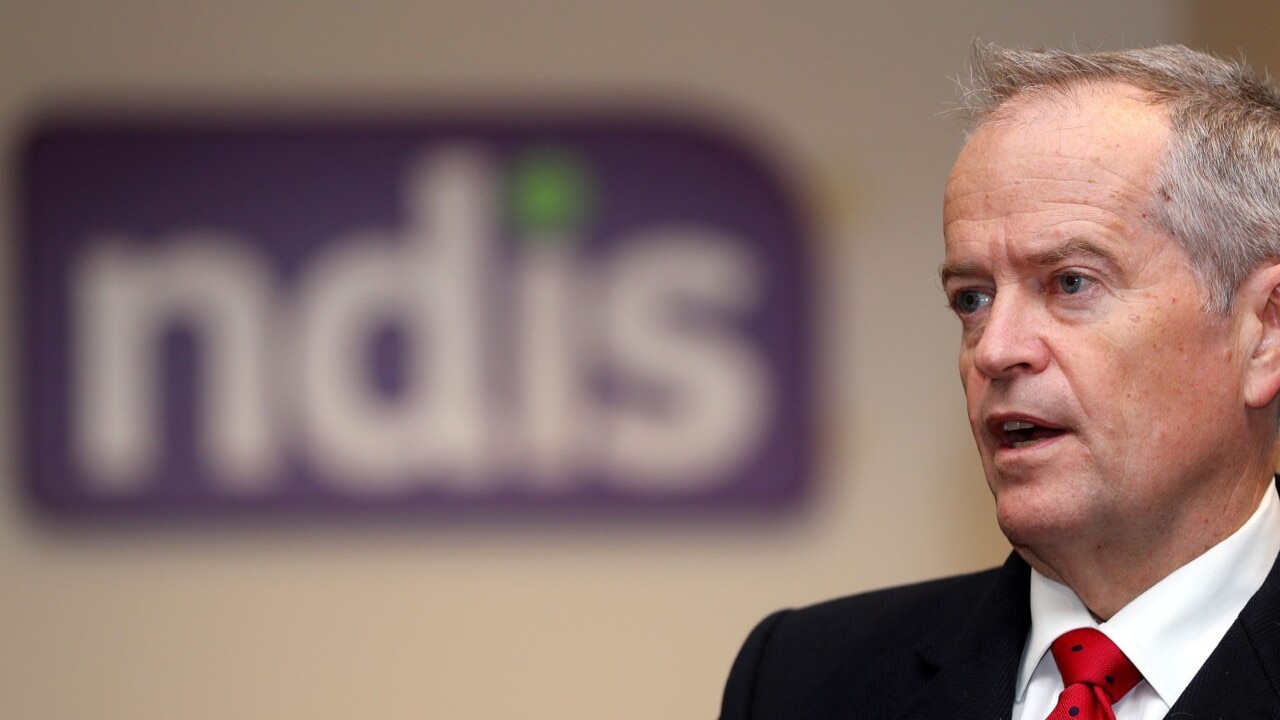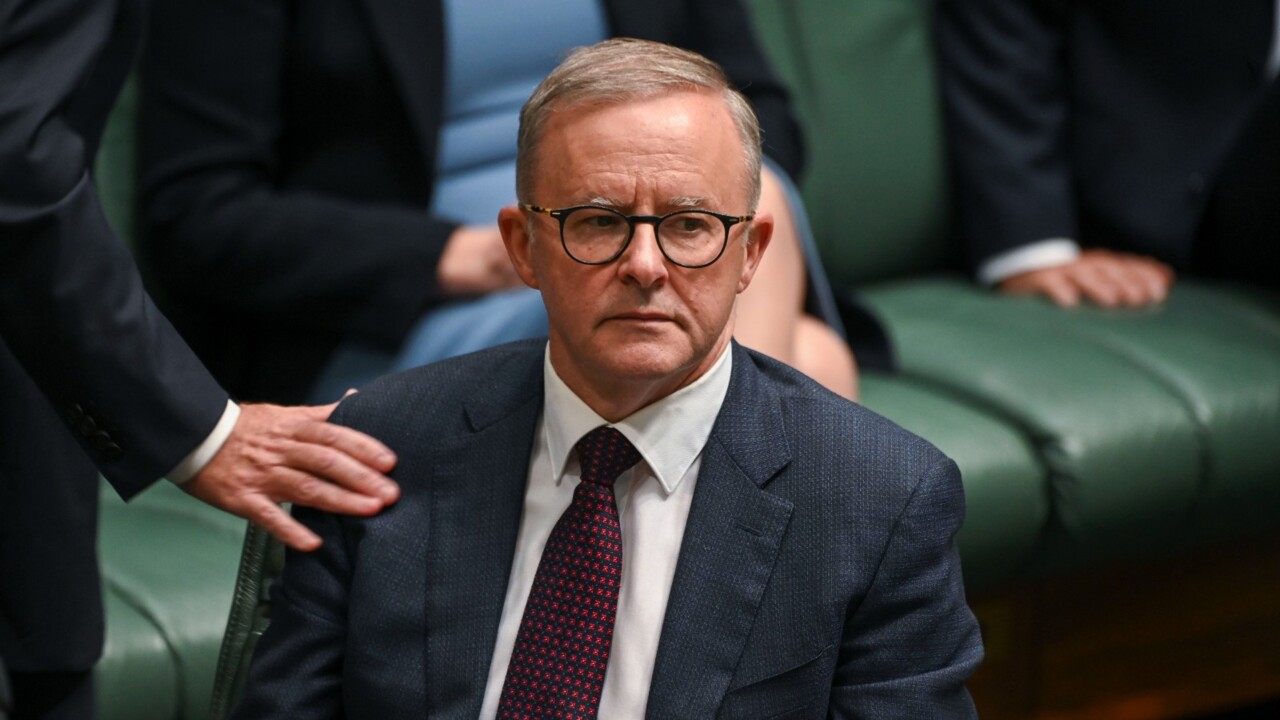States raise alarm with NDIS review
Bill Shorten faces an uphill battle to strike an NDIS reform deal at next week’s crucial national cabinet amid concerns over funding.

Bill Shorten faces an uphill battle to strike an NDIS reform deal at next week’s crucial national cabinet meeting, with state and territory governments claiming to be in the dark over how much funding they will be expected to provide for disabled people who no longer qualify for the revamped program.
With the NDIS review due to be released after national cabinet next week, state and territory government sources warned they would not sign up to any deal to reform the $35bn-a-year scheme without “knowing how much we’ll be on the hook for”.
The state and territory governments are worried they are being asked to provide more disability services in mainstream settings such as schools, without detail on how much it will cost or how many people they will need to support.
The Australian understands there is concern about a lack of detail of the impact of the proposed National Disability Insurance Scheme reforms from senior figures within the NSW, Victorian and the ACT governments.
State government sources have warned there was a real risk there would be no agreement struck at the December 6 meeting, pushing back reforms designed to cap the funding growth of the NDIS by 8 per cent a year in 2025.
“If you are going backwards on the NDIS and more people are coming out of it, what does that mean for … the services required and how much (will it cost),” said a senior state government source.
“We don’t have the modelling that has gone with the report.”
Others close to the negotiations confirmed there were clear definitions in the review about “what should and shouldn’t be on the NDIS”, but there was not a “transition plan” for diverting people away from the scheme and on to mainstream services.
“There’s no modelling for what the alternative service design looks like,” said a source from another government.
State and territory ministers have had the NDIS review for almost a month.

Mr Shorten last week said there needed to be more answers for children with autism than going on the NDIS.
“The conversation must shift away from ‘in or out’ of the NDIS, which has been the only lifeboat in the ocean for people needing support for too long,” Mr Shorten told The Australian last week.
In federal parliament on Wednesday, Mr Shorten would not say how much streamlining the NDIS would impact state government budgets.
“I wouldn’t want to pin the tail on the donkey; just throw a dart at the dartboard and just make up a number,” Mr Shorten said.
When pressed on whether states had been handed any modelling, Mr Shorten said the Commonwealth still needed “to find out what the states were doing” for people with disability.
Mr Shorten foreshadowed reforms would need to be agreed to quickly because there was not “an infinite amount of time” to fix the scheme.
“We need to move on and do these things,” he said. “To do nothing would be a betrayal of people with disability”.
Victorian Disability Minister Lizzie Blandthorn last week accused the federal government of being “underhanded” in its discussions over the scheme.
“At the moment, we have no clarity as to how we will change reasonable and necessary. There’s no clarity as to what it means for foundational support, and the lack of definition means there’s no clarity about how much any of that will cost,” she said.
“My fear would be it would fall on the states and I’m also concerned that the commonwealth government is going to cut Victorians out of the NDIS.”

ACT Disability Minister Emma Davidson said she would not agree to any reform that would cut neurodiverse people from the NDIS, without better services being put in place by the Commonwealth “within the NDIS or elsewhere”.
“Enough with talking about costs and how governments avoid paying for services people need, we should be talking about how to get better support for people,” she said.
Ms Davidson in April raised concern with the government announcing it would aim to cut spending on the NDIS to 8 per cent a year – almost half the rate at which the scheme is currently growing.
With NDIS costs rising annually by around 13-14 per cent and the number of participants growing faster than anticipated in its original design, Treasurer Jim Chalmers has described it as one of his budget’s biggest challenges.
National cabinet in April agreed to a cost growth target of 8 per cent from 2026, with Mr Shorten saying at the time the NDIS had “lost its way”.
With regard to children with autism or developmental delay, Mr Shorten has said “the NDIS is becoming a default funding source for families who are desperate to get some support for their kids, which they’re just not getting in the school system.”
NDIS review co-chair, disability advocate Bruce Bonyhady, clearly laid out its priorities and direction in speeches in August and September.

Professor Bonyhady said to ensure the NDIS remained “sustainable”, state and federal governments would need a new intergovernmental agreement clarifying their responsibilities to services for people with disability inside and outside the scheme.
People with Disability Australia president Nicole Lee told The Australian her community was anxious about the looming NDIS reforms, especially in the autism and psychosocial space.
Ms Lee said even funding within the NDIS for people with autism and psychosocial disabilities didn’t cover the supports required to allow people to achieve their goals.
Other states, including Queensland and Western Australia, have rebuffed suggestions from the Commonwealth and disability advocates that they had vacated the field when it came to supporting disabled Australians with mainstream services.
Queensland Disability Minister Craig Crawford told The Australian in August his constituents were paying billions of dollars in taxes to support the NDIS and for scheme participants who were in state hospitals.
“I absolutely reject criticism that the states and territories vacated the field when we all signed up to the NDIS at the request of the federal government and gave them billions to provide specialist disability services,” he said.
A spokeswoman for the Cook government said WA provided significant funding to the NDIS, with over $5bn allocated to support Western Australian NDIS participants over the next four years.
Mr Shorten said the Commonwealth recognised it had a role to deliver services outside of the NDIS “but that’s got to be in partnership with the states”.
Under an agreement struck when the NDIS was created, the state and territories jointly fund the scheme with the Commonwealth. Originally a 50-50 split, the terms of the deal now see the federal government paying a two-thirds share, and growing.







To join the conversation, please log in. Don't have an account? Register
Join the conversation, you are commenting as Logout